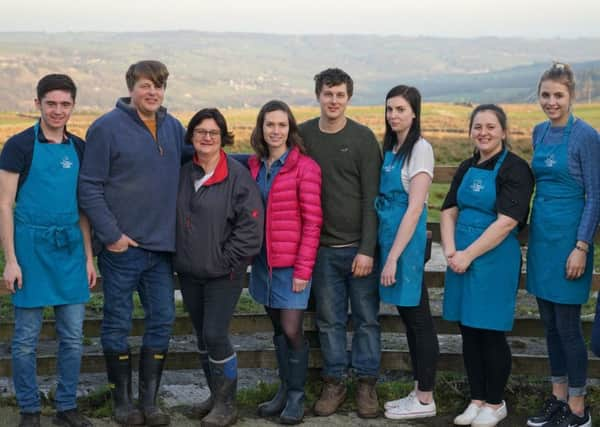Pateley Bridge couple Chris and Caroline Prince help document plight of hill farmers for Channel 5 TV show Springtime on the Farm
This article contains affiliate links. We may earn a small commission on items purchased through this article, but that does not affect our editorial judgement.


Springtime on the Farm, running all this week on Channel 5, features Toft Gate Farm in Pateley Bridge, Nidderdale where Caroline and Chris Prince have reduced their flock size from 220 to 100 sheep, and have diversified by opening a café.
Hill farms such as theirs are expected to be among the most impacted by the proposed phasing out of direct support payments - currently paid to farms under the European Union’s Common Agricultural Policy - by 2028.
Advertisement
Hide AdAdvertisement
Hide AdUpland grazing enterprises rely heavily on those payments. Some 91 per cent of their income was from direct payments between 2015 and 2018.
Researchers from Leeds-based Daisybeck Studios, producers of Springtime on the Farm, have worked with staff at Nidderdale Area of Outstanding Natural Beauty (AONB) to inform their focus on hill farming.
Marian Wilby, the AONB’s farm conservation advisor, said: “It’s important the struggle hill farmers’ face is being highlighted.
“In the past year, the AONB has hosted a series of events - Farming for the Future - in association with the Princes Countryside Fund, advising farmers to look at their business model post-Brexit.”
Advertisement
Hide AdAdvertisement
Hide AdChris Clark, an Upper Wharfedale farmer and business management adviser, who carried out research on 25 farms for the Farming for the Future events, believes hill farming faces huge changes.
“What is happening in hill farming and agriculture shares similarities to what happened in the coal mines in the North of England,” he said.
“The need for coal changed, but for coal miners, their work was a part of their DNA and identity, ingrained in their community. It was hard to adapt. Hill farmers share that same sense of purpose; it’s their livelihood. But I believe their purpose is going to fundamentally change in the next five to ten years.
“Research points to the very real scenario that their purpose will change from food production to include different public and environmental benefits.”
Advertisement
Hide AdAdvertisement
Hide AdAccording to the Nidderdale AONB, there are 800 farmers in Nidderdale where incomes without subsidies are as low as £7,000.
Ms Wilby added: “Farming is vitally important in Nidderdale, and it’s helped create the special landscape qualities that underpin our status as an Area of Outstanding Natural Beauty. We want to ensure the existing farm holdings survive. As well as upland livestock farming making a vital contribution to landscape, it’s integral to our rural economy and our communities.”
